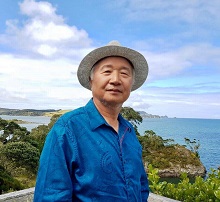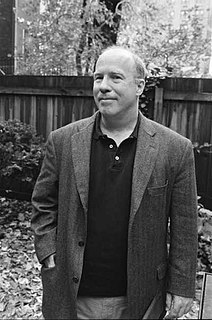A Quote by Robert Wyatt
I think there are deep structural things that are wrong in the world. The US is the Western empire of the 19th century regrouping in the 20th, not out of wickedness, but because everybody else in Eurasia was so completely destroyed by the Second World War. Economically, that was quite a useful time for the US, so they ended up in the position of enormous power. And like any great power, they're going to act in their own interests. The problem is due to what the business community wants, which is to make as much money as they can out of what other people do and pay as little as possible for it.
Quote Topics
Act
Any
Because
Business
Business Community
Century
Community
Deep
Destroyed
Due
Economically
Else
Empire
Ended
Enormous
Everybody
Everybody Else
Going
Great
Great Power
Interests
Like
Little
Make
Money
Much
Other
Out
Own
Pay
People
Position
Possible
Power
Problem
Quite
Regrouping
Second
Second World War
Structural
Things
Think
Time
Up
Us
Useful
Wants
War
Western
Which
Wickedness
World
World War
Wrong
Related Quotes
I start from the supposition that the world is topsyturvy, that things are all wrong, that the wrong people are in jail and the wrong people are out of jail, that the wrong people are in power and the wrong people are out of power, that the wealth is distributed in this country and the world in such a way as not simply to require small reform but to require a drastic reallocation of wealth. I start from the supposition that we don't have to say too much about this because all we have to do is think about the state of the world today and realize that things are all upside down.
In the last quarter of the 20th century, Britons have been understandably obsessed with the problem of having too little power in the world. In the third quarter of the 18th century, by contrast, their forebears were perplexed by the problem of having acquired too much power too quickly over too many people.
We have the Noble Desire to help others and benefit the world, without expecting any return or recognition. What makes us great is not our knowledge, skill, money, or power. What makes us great is not our knowledge, skill, money, or power. What makes us truly great is this noble desire, this passion that transcends all separation, goes beyond one's limitations, and wants to hug others and embrace the whole world. This is not something that we need to learn, because we already have it. It just needs to be acknowledged and awakened.
Let's say that when every one of us is born we bring with us a little ring of power. That little ring is almost immediately put to use. So every one of us is already hooked from birth and our rings of power are joined to everyone else's. In other words, our rings of power are hooked to the doing of the world in order to make the world.
D-Day represents the greatest achievement of the american people and system in the 20th century. It was the pivot point of the 20th century. It was the day on which the decision was made as to who was going to rule in this world in the second half of the 20th century. Is it going to be Nazism, is it going to be communism, or are the democracies going to prevail?
The American tradition of foreign policy exceptionalism, our grand strategy as a nation, reaches back much further. Really at the turn - the end of the 19th century, when we achieved power a generation after the Civil War, the outlines of an American vision came into focus, and what we - it was based on two things. One, our realization that our values and our interests were the same, and that our business interests would advance as our values advanced in the world.
Because the US has control of the sea. Because the US has built up its wealth. Because the US is the only country in the world really not to have a war fought on its territory since the time of the Civil War ... Therefore we can afford mistakes that would kill other countries. And therefore we can take risks that they can't ... the core answer to why the United States is like this is we didn't fight World War I and World War II and the Cold War here.



































